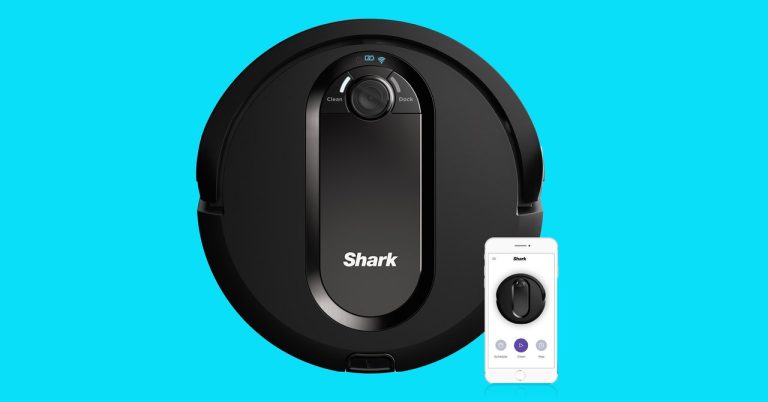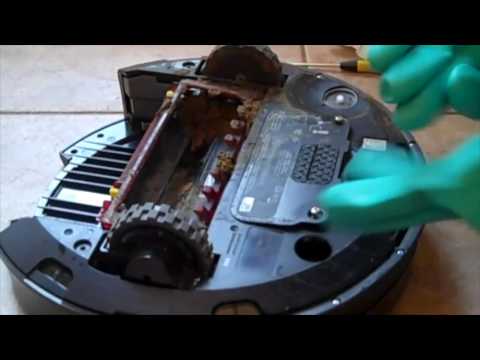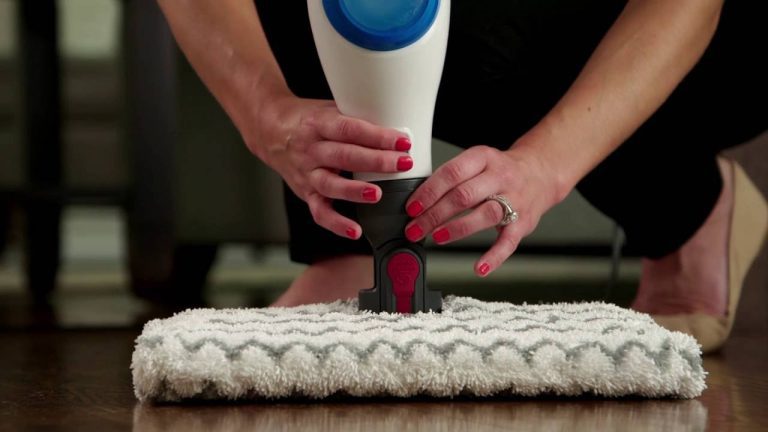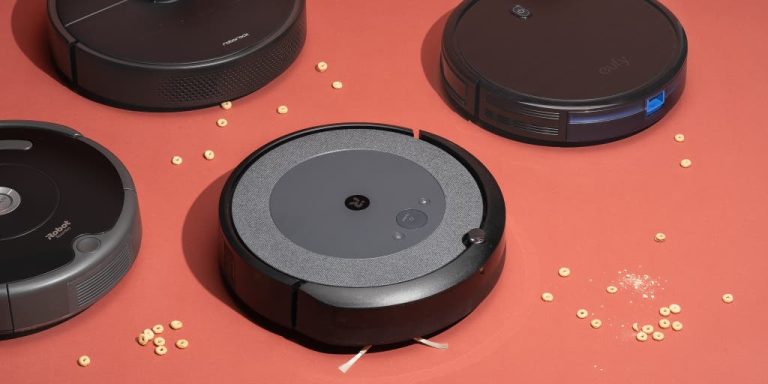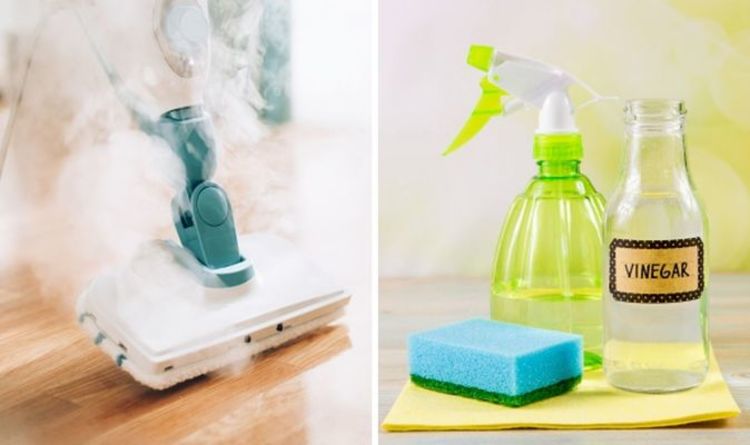Do Robot Vacuums Set off House Alarms?
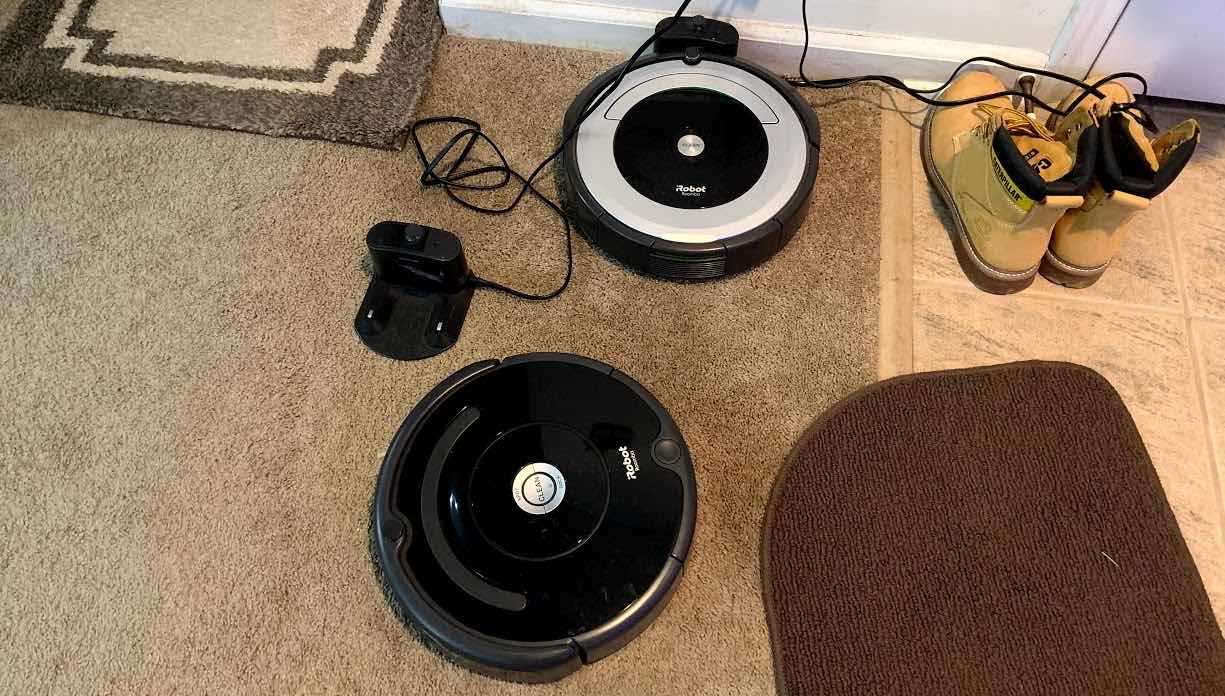
No, robot vacuums do not set off house alarms.
What robot vacuums do when you sleep!
If you’re considering buying a robot vacuum, you may be wondering if they can set off house alarms. The short answer is: it’s unlikely. Most robot vacuums are designed to be very quiet so as not to disturb people or pets in the home.
However, there are a few things that could potentially cause your alarm to go off while using a robot vacuum.
For example, if your alarm is particularly sensitive, the vibration of the vacuum could trigger it. Additionally, if you have an infrared sensor on your alarm system, the moving heat signature of the vacuum could also set it off.
In most cases, however, these scenarios are unlikely and you shouldn’t have any problem using a robot vacuum without setting off your house alarm.
Roomba
I’m sure you’ve seen Roombas before – those little robot vacuum cleaners that scoot around your floors, sucking up all the dirt and debris in their path. But what exactly are these nifty little machines, and how do they work? Roombas are essentially small, autonomous vacuums that move around your home on their own, cleaning your floors as they go.
They use a variety of sensors to navigate your rooms and avoid obstacles, and they’re equipped with powerful suction to make short work of dirt, dust, and pet hair. There are a few different models of Roomba available on the market today, but they all basically work in the same way. You simply charge up the Roomba’s battery, press a button to start it cleaning, and then let it do its thing.
When it’s finished, it will return to its charging dock on its own. So if you’re looking for an easy way to keep your floors clean with minimal effort on your part, a Roomba might be just what you need.
Are Robot Vacuum a Security Risk?
If you’re considering purchasing a robot vacuum, you may be wondering if these devices are secure. After all, they are connected to your home’s Wi-Fi and collect data about your home’s layout and dirt levels. So, are robot vacuums a security risk?
In general, no. Robot vacuums are not a security risk. While it is true that they are connected to your home’s Wi-Fi and collect data, this data is not personal or sensitive in nature.
The data collected by robot vacuums is used solely for the purpose of cleaning your home more effectively.
That said, there have been some isolated incidents where hackers have gained access to people’s robot vacuums and used them to spy on their homes. However, these incidents are rare and typically only occur when people have not properly secured their device (for example, by using a strong password).
If you’re concerned about security, there are a few things you can do to protect yourself. First, make sure that you choose a reputable brand of robot vacuum with robust security features. Second, always use a strong password when setting up your device.
And finally, keep an eye on your device for any unusual activity (such as unexpected movements or strange noises).
How Do You Prepare a House for a Robot Vacuum?
You might be surprised to learn that there are a few things you need to do to prepare your home for a robot vacuum. These devices are becoming increasingly popular, as they offer many benefits over traditional vacuums. However, before you can enjoy the hands-free cleaning experience of a robotic vacuum, there are some preparations you need to make.
In this blog post, we’ll show you how to get your home ready for a robot vacuum cleaner.
The first thing you need to do is clear the floors of any obstacles. This includes things like area rugs, cords, and small toys.
You also need to make sure that there is a clear path from one room to the next so that the vacuum can move freely about your home. If possible, it’s also a good idea to declutter each room so that the vacuum can clean more effectively.
Next, you’ll need to create virtual boundaries for your robot vacuum.
This can be done with special tape or mats that tell the device where it should and shouldn’t go. For example, if you have an open staircase, you’ll want to use boundary markers to keep the vacuum from falling down the stairs. Once your boundaries are in place, test them out by running the vacuum in manual mode (if available)to make sure it doesn’t cross any lines.
Finally, it’s important to regularly maintain your robot vacuum by emptying its dustbin and cleaning its sensors and brushes accordingto manufacturer’s instructions. By taking these simple steps, you can ensure that your robotic vac will work properly and help keep your home clean!
What Can Set off a Motion Detector?
There are a few things that can set off a motion detector, including animals, bugs, and wind. Most motion detectors have adjustable settings that can help to reduce false alarms from these causes.
Animals are one of the most common causes of false alarms for motion detectors.
If you have pets or wildlife in your yard, they may trigger the sensor when they move around. To prevent this, you can adjust the sensitivity of the sensor so that it only picks up larger movements. You can also try placing the sensor out of reach of any animals that might trigger it.
Bugs are another common cause of false alarms for motion detectors. Insects can sometimes fly into the path of the sensor, causing it to go off. To prevent this, you can clean the lens of the sensor regularly to keep bugs from triggering it.
You can also adjust the sensitivity setting so that it is less likely to be triggered by small insects.
Wind is another common cause of false alarms for motion detectors. Wind can sometimes blow objects in front of the sensor, causing it to go off.
To prevent this, you can adjust the sensitivity setting so that it is less likely to be triggered by small movements. You can also try placing the sensor in an area where there is less wind activity.
Can You Use a Robot Vacuum in an Apartment?
Yes, you can use a robot vacuum in an apartment. There are a few things to keep in mind, however. First, make sure your apartment is big enough for the robot vacuum to maneuver around easily.
Second, check with your landlord or management company to see if there are any restrictions on using vacuum cleaners in your building. Third, be aware that some robot vacuums are not designed for use on carpeted floors; if you have carpeting in your apartment, make sure to get a model that is specifically designed for use on carpets. Lastly, remember to empty the dustbin on your robot vacuum regularly; otherwise, it will quickly become clogged and less effective at cleaning your floors.
Conclusion
If you have a house alarm, you may be wondering if a robot vacuum can set it off. The short answer is yes, but there are a few things to keep in mind. First of all, most alarms are not sensitive enough to be triggered by the movement of a vacuum cleaner.
If your alarm is particularly sensitive or if the vacuum cleaner bumps into something that sets off the alarm, then it is possible. If you are concerned about this, you can always test your alarm with your vacuum cleaner before using it to clean your entire house.
